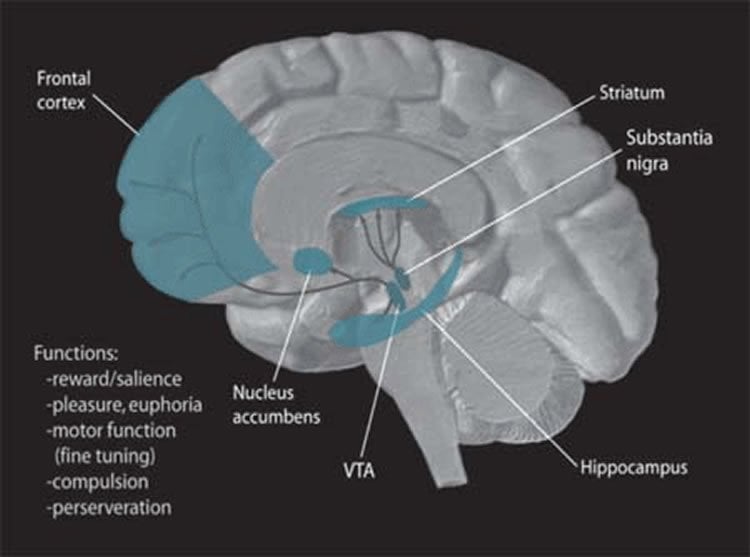A new study in rats may provide significant insights into the long-term impacts of over-consumption of sugary foods during adolescence.
The study shows that the enjoyment of such foods later in adulthood is reduced in those who over-consumed early in life. Investigators found that this decrease in reward relates to reduced activity in one of the key hubs of the brain’s reward circuitry, called the nucleus accumbens. Such long-lasting alterations could have important implications for reward-related disorders such as substance abuse or eating disorders.
“In spite of the dramatic increase in the consumption of sweet palatable foods during adolescence in our modern societies, the long-term consequences of such exposure on brain reward processing remain poorly understood,” said Dr. Martine Cador, senior author of the European Journal of Neuroscience study.

Source: Dawn Peters – Wiley
Image Source: The image is credited to NIDA and is in the public domain
Original Research: Abstract for “Long-lasting deficits in hedonic and nucleus accumbens reactivity to sweet rewards by sugar overconsumption during adolescence” by Fabien Naneix, Florence Darlot, Etienne Coutureau and Martine Cador in European Journal of Neuroscience. Published online January 13 2016 doi:10.1111/ejn.13149
Abstract
Long-lasting deficits in hedonic and nucleus accumbens reactivity to sweet rewards by sugar overconsumption during adolescence
Adolescence is a critical period characterized by major neurobiological changes. Chronic stimulation of the reward system might constitute an important factor in vulnerability to pathological development. In spite of the dramatic increase in the consumption of sweet palatable foods during adolescence in our modern societies, the long-term consequences of such exposure on brain reward processing remain poorly understood. Here, we investigated in rats the long-lasting effects of sugar overconsumption during their adolescence on their adult reactivity to the hedonic properties of sweet rewards. Adolescent rats with continuous access to 5% sucrose solution (from postnatal day 30–46) showed escalating intake. At adulthood (post-natal day 70), using two-bottle free choice tests, sucrose-exposed rats showed lower intake than non-exposed rats suggesting decreased sensitivity to the rewarding properties of sucrose. In Experiment 1, we tested their hedonic-related orofacial reactions to intraoral infusion of tasty solutions. We showed that sucrose-exposed rats presented less hedonic reactions in response to sweet tastes leaving the reactivity to water or quinine unaltered. Hence, in Experiment 2, we observed that this hedonic deficit is associated with lower c-Fos expression levels in the nucleus accumbens, a brain region known to play a central role in hedonic processing. These findings demonstrate that a history of high sucrose intake during the critical period of adolescence induces long-lasting deficits in hedonic treatment that may contribute to reward-related disorders.
“Long-lasting deficits in hedonic and nucleus accumbens reactivity to sweet rewards by sugar overconsumption during adolescence” by Fabien Naneix, Florence Darlot, Etienne Coutureau and Martine Cador in European Journal of Neuroscience. Published online January 13 2016 doi:10.1111/ejn.13149






